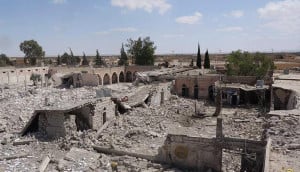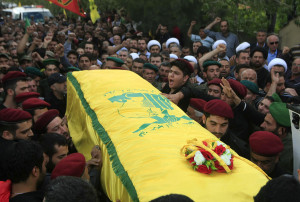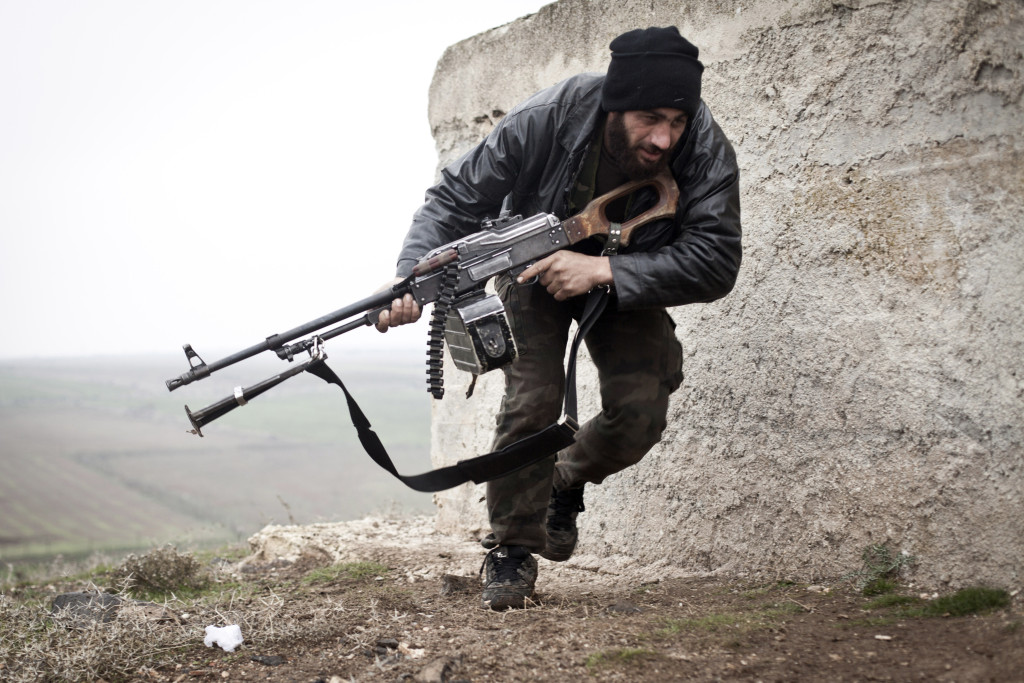The Syrian Army has fallen apart and Hezbollah is in distress, according to a senior IDF officer.


Tadmur Prison in Palmyra, destroyed by ISIS. (AP)
The Syrian Army is a non-entity and Hezbollah is in distress, an IDF officer told reporters on Wednesday.
“The situation in Syria is disintegrating,” the officer, who spoke on condition of anonymity, said. “Syria is currently in the worst situation it has been since the beginning of the civil war and its army is at a low level of fitness for fighting.”
The officer’s comments echo the assertion by Deputy Chief of Staff Maj. Gen. Yair Golan at a Tel Aviv University conference on Monday. “The Syrian army has, for all intents and purposes, ceased to exist,” Golan stated.
Syrian President Bashar al-Assad’s forces have recently suffered a number of setbacks, including rebel successes in both the north and the south of Syria and the fall of Palmyra to ISIS.
“The situation is very complex. In the Alawite area of Latakia…the protection [by Assad’s forces] is more significant. But in Dar’a and Damascus the situation is more complicated and difficult. I don’t want to predict, but Syria is in the worst situation since the beginning of the fighting,” the officer said. “The whole thing is falling apart and Assad is mostly relying on Hezbollah.”
According to the officer’s estimates, Hezbollah has lost at least 700 men in Syria, including 100 in the past two weeks alone. It is hard to get an exact number, as Hezbollah chief Hassan Nasrallah has been trying to conceal the extent of the terrorist organization’s losses, which may be as high as three percent of all its fighters. As the situation has worsened, Hezbollah increased its numbers in Syria from 5,000 to between 6,000 and 8,000. Many of these terrorists were pulled from their stations on the border with Israel to be deployed in Syria, which “points to their distress.”


Funeral of Hezbollah terrorist Ahmad al-Amin, killed in Syria. (AP/Mohammed Zaatari)
Hezbollah has paid a political price for its involvement, being mocked as the “defender of Syria” rather than the “defender of Lebanon.” Despite having 100,000 rockets and missiles at the ready to attack Israel, Hezbollah is unlikely to do so in order to salvage its reputation. “The last thing they want is to open a front with us,” the officer said.”
A greater concern to Israel is Al-Qaeda’s presence along the Golan Heights. Although most of the territory near the Golan is held by rebel groups, the Nusra Front holds positions a mere 100 yards from the border.
As for Iran, the IDF anticipates that the country will continue to provide funding and material to Assad and his allies, but will not contribute troops, as there is less to be gained in Syria than there is in Iraq or Lebanon. “Why should they shed blood for Hezbollah?” the officer asked.

